
Joseph Cheshire Cotten Jr. was an American film, stage, radio and television actor. Cotten achieved prominence on Broadway, starring in the original stage productions of The Philadelphia Story (1939) and Sabrina Fair (1953). He then gained worldwide fame for his collaborations with Orson Welles on three films, Citizen Kane (1941), The Magnificent Ambersons (1942), and Journey into Fear (1943), which Cotten starred in and for which he was also credited with the screenplay.

Moss Hart was an American playwright, librettist, and theater director.

Edgar Montilion "Monty" Woolley was an American film and theater actor. At the age of 50, he achieved a measure of stardom for his role in the 1939 stage play The Man Who Came to Dinner and its 1942 film adaptation. His distinctive white beard was his trademark and he was affectionately known as "The Beard."
Life with Father is a 1939 play by Howard Lindsay and Russel Crouse, adapted from a humorous autobiographical book of stories compiled in 1935 by Clarence Day. The Broadway production ran for 3,224 performances over 401 weeks to become the longest-running non-musical play on Broadway, a record that it still holds. The play was adapted into a 1947 feature film and a television series.

Lee Ann Remick was an American actress and singer. She was nominated for the Academy Award for Best Actress for the film Days of Wine and Roses (1962).
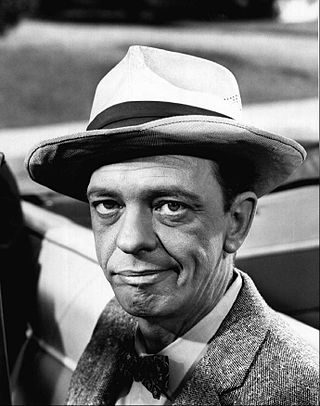
Jesse Donald Knotts was an American actor and comedian. He is widely known for his role as Deputy Sheriff Barney Fife on the 1960s sitcom The Andy Griffith Show, for which he earned five Emmy Awards. He also played Ralph Furley on the highly rated sitcom Three's Company from 1979 to 1984. He starred in multiple comedic films, including leading roles in The Incredible Mr. Limpet (1964) and The Ghost and Mr. Chicken (1966). In 2004, TV Guide ranked him number 27 on its 50 Greatest TV Stars of All Time list.
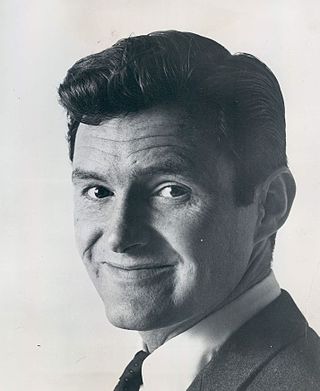
Orson Bean was an American film, television, and stage actor. He was a game show and talk show host and a "mainstay of Los Angeles’ small theater scene." He appeared frequently on several televised game shows from the 1960s through the 1980s and was a longtime panelist on the television game show To Tell the Truth. "A storyteller par excellence", he was a favorite of Johnny Carson, appearing on The Tonight Show more than 200 times.

Mary Wickes was an American actress. She often played supporting roles as prim, professional women, secretaries, nurses, nuns, therapists, teachers and housekeepers, who made sarcastic quips when the leading characters fell short of her high standards.

Audra MarieLindley was an American actress, most famous for her role as landlady Helen Roper on the sitcom Three's Company and its spin-off The Ropers.
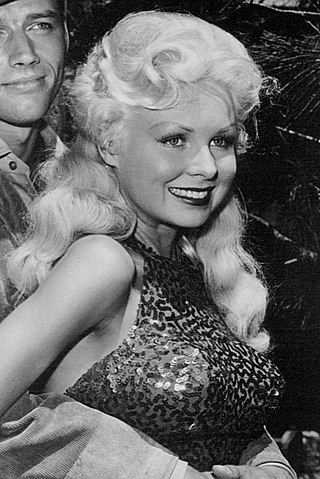
Joi Lansing was an American model, film and television actress, and nightclub singer. She was noted for her pin-up photos and roles in B-movies, as well as a prominent role in the famous opening "tracking shot" in Orson Welles' 1958 crime drama Touch of Evil.
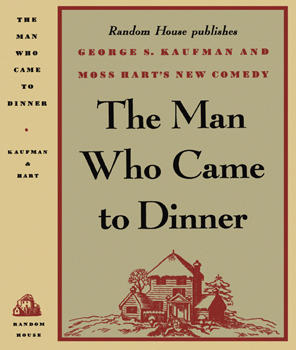
The Man Who Came to Dinner is a comedy play by George S. Kaufman and Moss Hart. It debuted on October 16, 1939, at the Music Box Theatre in New York City, where it ran until 1941, closing after 739 performances. It then enjoyed a number of New York and London revivals. The first London production was staged at The Savoy Theatre starring Robert Morley and Coral Browne. In 1990, Browne stated in a televised biographical interview, broadcast on UK Channel 4, that she bought the rights to the play, borrowing money from her dentist to do so. When she died, her will revealed that she had received royalties for all later productions and adaptations of the play.
Henry David Jaglom is an English-born American actor, film director and playwright.
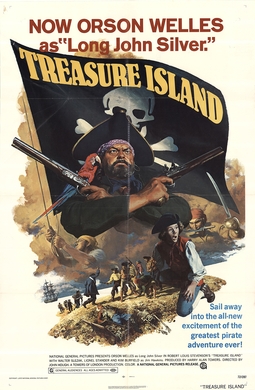
Treasure Island is a 1972 adventure film, based on the 1883 novel by Robert Louis Stevenson. The film stars Orson Welles as Long John Silver, Kim Burfield as Jim Hawkins, Walter Slezak as Squire Trelawney, Rik Battaglia as Captain Smollett, and Ángel del Pozo as Doctor Livesey.
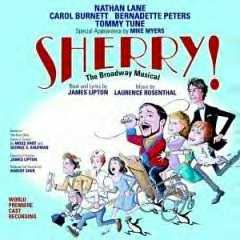
Sherry! is a musical with a book and lyrics by James Lipton and music by Laurence Rosenthal. The musical is based on the 1939 George S. Kaufman-Moss Hart play The Man Who Came to Dinner.

Stanley Sheff is a Hollywood born director and screenwriter. He has worked in television, stage and screen. His collaboration with Orson Welles eventually led Sheff to direct and co-write the cult sci-fi feature Lobster Man from Mars (1989) starring Tony Curtis, based on a title suggested by Welles. Feature films and television are not the only types of projects directed by Stanley Sheff. In the early 1980s, he produced, directed, and performed a popular comedy radio show for KROQ-FM radio in Los Angeles called "The Young Marquis and Stanley", a comedy show that was aired on Sunday evenings. He has appeared as Master of Ceremonies on stage and at live vintage dance events as his character Maxwell DeMille.
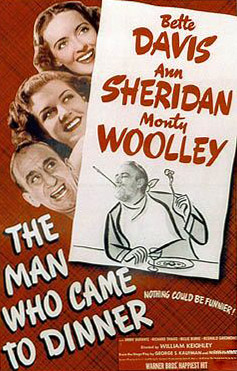
The Man Who Came to Dinner is a 1942 American screwball comedy film directed by William Keighley, and starring Bette Davis, Ann Sheridan and, as the titular character, Monty Woolley. The screenplay by Julius and Philip G. Epstein is based on the 1939 play The Man Who Came to Dinner by Moss Hart and George S. Kaufman. The supporting cast features Jimmy Durante and Billie Burke.

The Love God? is a 1969 American comedy film starring Don Knotts and Edmond O'Brien. It was written and directed by Nat Hiken, who died between the completion of shooting and the film's release. The Love God? marked a change of pace for Knotts, who had exclusively appeared in family comedies, and was an attempt to integrate Knotts into the adult-oriented films that dominated the late 1960s and early 1970s.
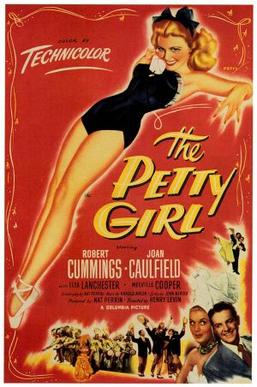
The Petty Girl (1950), known in the UK as Girl of the Year, is a musical romantic comedy Technicolor film starring Robert Cummings and Joan Caulfield. Cummings portrays painter George Petty who falls for Victoria Braymore (Caulfield), the youngest professor at Braymore College who eventually becomes "The Petty Girl".

Pursuit is a 1972 American made-for-television drama film that screened on the ABC network as an ABC Movie of the Week. It was Michael Crichton's first work as a director, though his theatrical directorial debut would not premiere until the following year. It is based on Crichton's 1972 novel Binary, which he published under the pseudonym John Lange.
Beatrice Colen was an American television and film actress. She may be best known for her television roles as roller-skating carhop Marsha Simms on Happy Days and as Etta Candy on the first season of Wonder Woman.
















